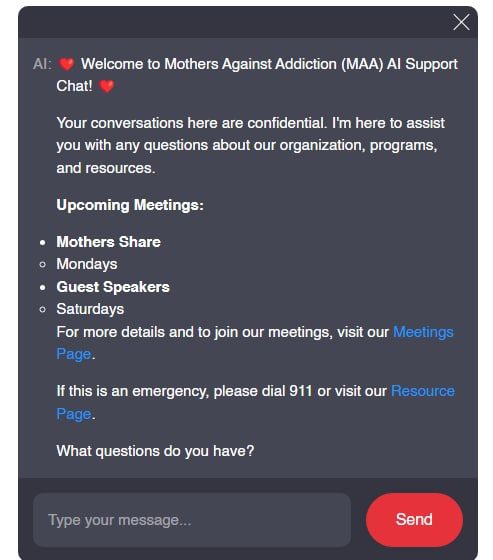Facing the question “Am I an alcoholic?” can be a daunting journey for many. Alcohol addiction is complex, permeating various aspects of life. Recognizing this struggle is the first step toward healthier living for you and your family. Mothers Against Addiction is committed to assisting parents contending with their children’s addiction or grieving a child lost to addiction. This article will explore signs, self-assessment tools, patterns, realities of functioning alcoholics, and steps toward recovery.

Signs and Symptoms to Ask Yourself: Am I an Alcoholic?
The first stride in this self-discovery journey involves understanding the signs and symptoms of alcohol addiction. Answer the following questions to gauge your relationship with alcohol:
Each of these points delves into different aspects of alcohol consumption and its impact. Understanding these symptoms can illuminate the depth of your struggle with alcohol.

The ‘Am I an Alcoholic’ Quiz: A Tool for Self-Assessment
Self-assessment tools like the “Am I an Alcoholic Quiz” are instrumental in gaining clarity on your drinking habits. These quizzes, built on standards from reputable sources such as the National Institute on Alcohol Abuse and Alcoholism (NIAAA) and Alcoholics Anonymous (AA), typically include:
While these quizzes provide initial insights, always consult a professional for a comprehensive diagnosis. Such tools are starting points to understand your drinking patterns, not definitive answers.
| Criteria | Description | Benefits of Seeking Help |
|---|---|---|
| Frequency of Drinking | Regularly drinking alcohol, especially daily or binge drinking on weekends. | Establishes a healthier routine and reduces dependency. |
| Quantity Consumed | Consuming large amounts of alcohol regularly (e.g., more than 3-4 drinks per occasion). | Reduces risk of alcohol poisoning and chronic health issues. |
| Control Over Drinking | Difficulty in limiting alcohol intake or stopping once started. | Helps regain control over life choices and improves mental stability. |
| Impact on Daily Life | Alcohol affecting responsibilities at work, home, or school. | Better performance and productivity in daily responsibilities. |
| Relationship Strain | Conflicts with family, friends, and colleagues due to drinking habits. | Repairs and strengthens personal and professional relationships. |
| Physical Health Issues | Exhibiting signs of liver damage, constant hangovers, or other health concerns related to heavy drinking. | Prevents long-term health complications and promotes overall well-being. |
| Psychological Dependence | Feeling the need to drink to cope with stress or emotions. | Develops healthier coping mechanisms and reduces anxiety/depression. |
| Attempts to Quit | Unsuccessful attempts to cut down or stop drinking despite wanting to. | Support and strategies for successful cessation, improving commitment to sobriety. |
| Social Behaviors | Prioritizing social events where drinking is involved over other activities. | Encourages participation in varied activities and a diverse social life. |
| Legal Issues | Involvement in legal problems due to drinking (e.g., DUIs). | Avoids legal troubles and contributes to a safer community. |
Breaking the Cycle of Addiction: Recognizing Patterns and Seeking Help
Recognizing the cycle of addiction is essential in understanding how alcohol permeates your life. Here’s a breakdown of the typical stages:
Public figures like Philip Seymour Hoffman have shown how devastating addiction can be. However, breaking this cycle is achievable through professional intervention, support groups, and structured rehab programs.
Functioning Alcoholics: Dispelling Myths and Recognizing Reality
The term “functioning alcoholic” often describes individuals who maintain outward success in careers and relationships while grappling with alcohol dependence. They might seem in control, but internally, the battle is arduous.
Moving Forward: Steps to Address Alcohol Addiction in 2024
Navigating from dependency to recovery involves several steps:
The path to recovery is personal, leveraging advances in medicine and technology to provide a tailored approach.
Innovative Paths to Recovery
Recovery in 2024 uses cutting-edge technology, such as:
These innovative tools promise more accessible and responsive support, aiding in sustained sobriety.
Moving beyond surface-level understanding, contemporary examples and research highlight that while addiction is complex, it is conquerable. If you’re evaluating your connection with alcohol, know that help is available and recovery is attainable. Utilize resources, seek professional advice, and connect with support groups. The journey to a healthier, sober life starts today.
Mothers Against Addiction is here to support parents in these challenging times, providing guidance to navigate their loved ones’ struggles with addiction or helping cope with loss. Visit www.MothersAgainstAddiction.org for support, resources, and community.
Am I An Alcoholic Struggling with Addiction?
Wondering am I an alcoholic is not something any of us envision. But here you are, grappling with questions, doubts, and maybe even a sense of fear. Incorporating a bit of trivia can sometimes lighten the mood and provide enlightening insights that could aid in the introspection.
Unraveling the Term ‘ETOH’
Did you know the term “ETOH” is an abbreviation from ancient chemistry jargon? E T O H meaning delves into ethanol, the active ingredient in alcohol that leads to intoxication. Without getting too technical, understanding this could shed some light on why alcohol affects the brain and body the way it does. Terry O’Quinn, the actor well-known for his role in “Lost, has openly discussed his battles with alcoholism. Moments of revelation, such as his, can remind us that addiction doesn’t discriminate and knowing the basics—such as what ETOH stands for—makes you more informed.
Historical Context and Personal Stories
Nestled in Pershore , Worcestershire, there have been remarkable community initiatives aimed at combating alcoholism. Learning about how different cultures and communities tackle addiction can be quite thought-provoking. It adds layers to your understanding and might even offer a glimmer of hope. Imagine the sheer perseverance required to drive forward on a foggy day. Similarly, your journey could be your drive To home—a( path filled with challenges but leading to a brighter, sober future.
Financial Decisions and Personal Choices
When pondering am I an alcoholic, don’t forget the financial impact. Alcoholism can deplete savings quicker than checking today’s house interest rate. It’s easy to overlook, but the toll on your wallet often mirrors the toll on your life. Sometimes, a build-up of small daily decisions over time leads to a significant impact. Similarly, identifying and acknowleding the constant ‘little sips’ reveal bigger truths.
Unexpected Connections and Reflections
In one of the Morning Sun Obituaries, a touching tribute mentioned someone whose battle with alcoholism led to an early demise. Morning Sun obituaries( recount lives rich in both triumphs and struggles, making our own battles feel a bit more universal. Also, consider the famous Jesus painting often lauded for its ethereal calm. It might inspire you to seek peace, reminding you that hope is never lost, even when it seems distant.
Fascinating trivia provides fresh perspectives on complex issues such as alcohol addiction. As you navigate your personal journey, every bit of knowledge and understanding can help lay the groundwork for a brighter, healthier future. Knowing the historical context, chemical makeup, and personal stories adds a multidimensional layer to your journey, aiding you as you ponder am I an alcoholic.





























